Question And Answer
Publications
Articles, publications, books, tools and multimedia features from the U.S. Institute of Peace provide the latest news, analysis, research findings, practitioner guides and reports, all related to the conflict zones and issues that are at the center of the Institute’s work to prevent and reduce violent conflict.
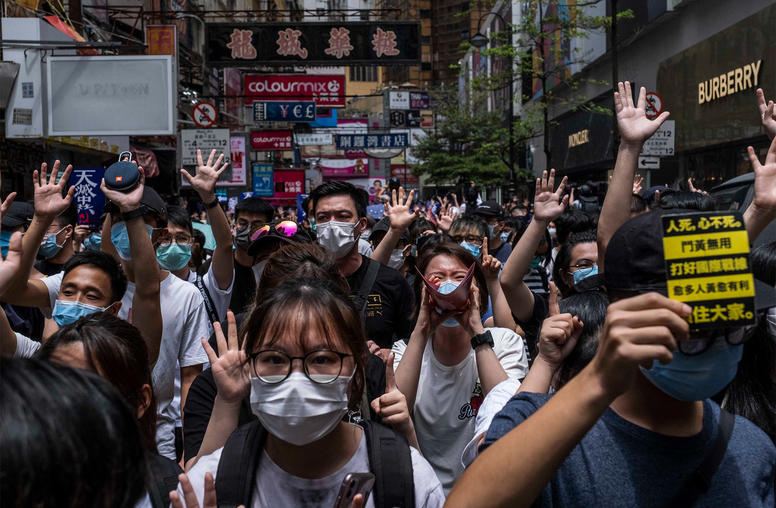
Mediating Mass Movements
People power is a defining feature of our time. In 2019, movements in Sudan and Algeria forced entrenched military dictators from power. In Hong Kong, millions of citizens have taken to the streets to demand democratic self-rule. Chile, Colombia, Lebanon and Iraq faced popular uprisings by citizens railing against corruption, government incompetence and dysfunctional political and economic systems. These protests are happening at a time of resurgent authoritarianism, marked by a 13-year global decline in civil and political rights and an erosion of the rule of law. Widening inequality, rampant corruption, and the fraying of social contracts between governments and their citizens are at the roots of many of these conflicts.

After Bashir, A New Dawn in Sudan? (Part 2)
Longtime Sudanese dictator Omar al-Bashir was ousted last Thursday, 30 years after he took power in the same fashion he was overthrown: by a military coup. The military takeover was spurred by months of popular protests over rising food prices, economic mismanagement and demands for a...
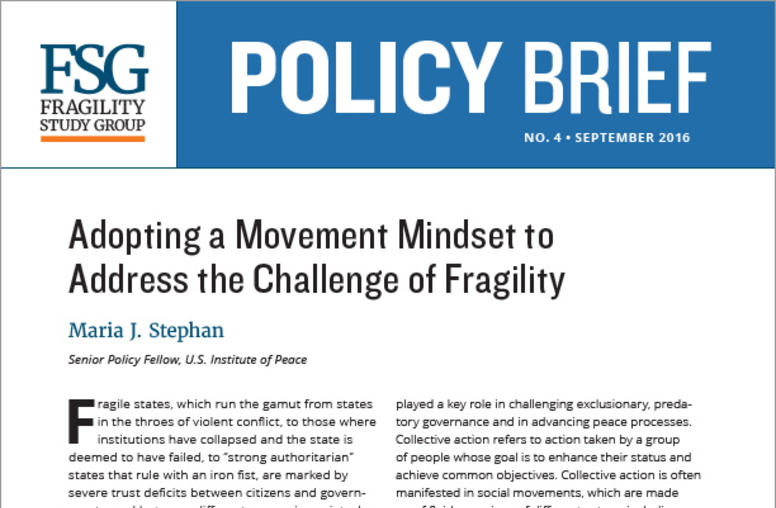
Adopting a Movement Mindset to Address the Challenge of Fragility
The Fragility Study Group is an independent, non-partisan, effort of the Carnegie Endowment for International Peace, the Center for a New American Security and the United States Institute of Peace. The chair report of the study group, U.S. Leadership and the Challenge of State Fragility, was released on September 12. This brief is part of a series authored by scholars from the three institutions that build on the chair report to discuss the implications of fragility on existing U.S. tools, st...
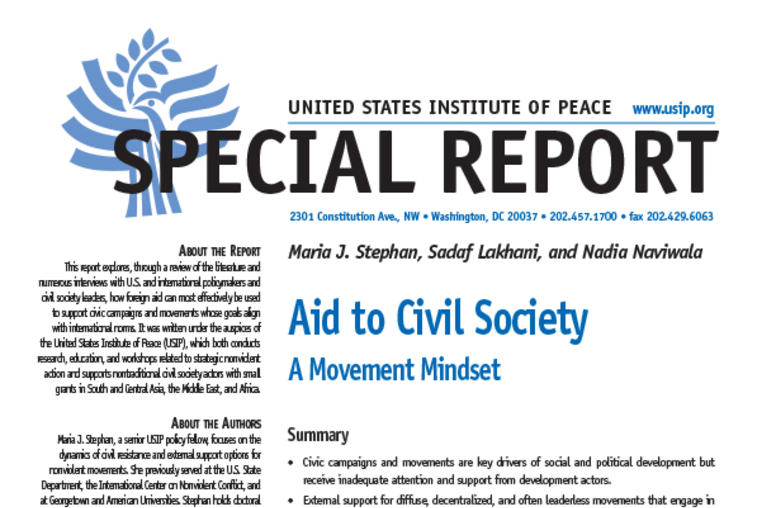
Aid to Civil Society: A Movement Mindset
Supporting local agents of nonviolent change is critical to preventing violent conflict and advancing democratic development. Civic campaigns are key drivers of social and political development, as is clear from issues-focused movements in Central and Eastern Europe, Latin America, and most recently the Middle East and North Africa. Effectively aiding civic movements that are fluid, diverse, decentralized, and often loosely organized is tricky. Drawn from a review of the literature and numero...
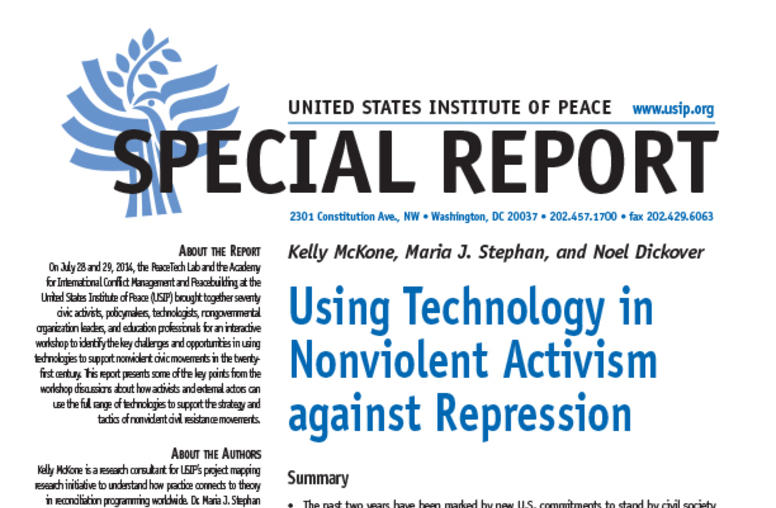
Using Technology in Nonviolent Activism against Repression
In an era of crackdowns on freedoms of peaceful assembly and association, what role can technology play in strengthening nonviolent civic mobilization? How can activists strategically apply the full range of technologies to build and sustain movements where the options for nonviolently resolving conflicts are diminishing under increased repression? Informed by discussions from a USIP workshop, this report explores avenues for engagement between activists and external actors to use technology ...
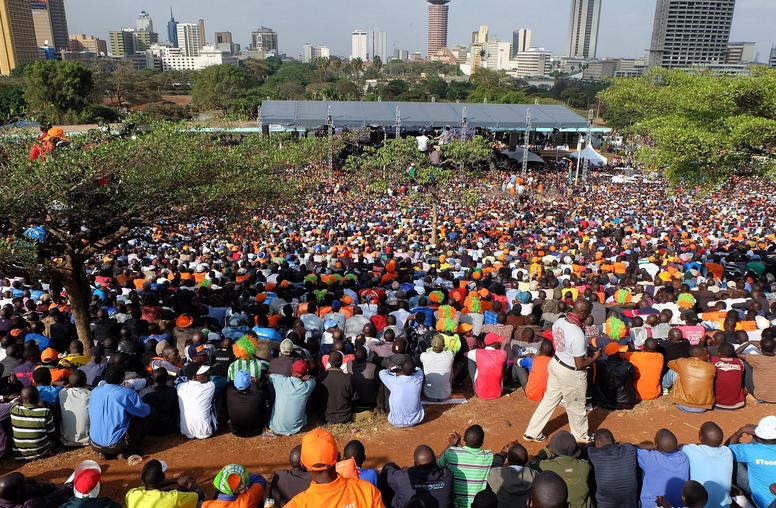
Banging Pots for Peace: Strategies to Prevent Electoral Violence
The recent election violence in Kenya and Honduras reveals a pattern that’s all too familiar: An incumbent campaigns on a platform of law and order and declares victory after a contested election. The
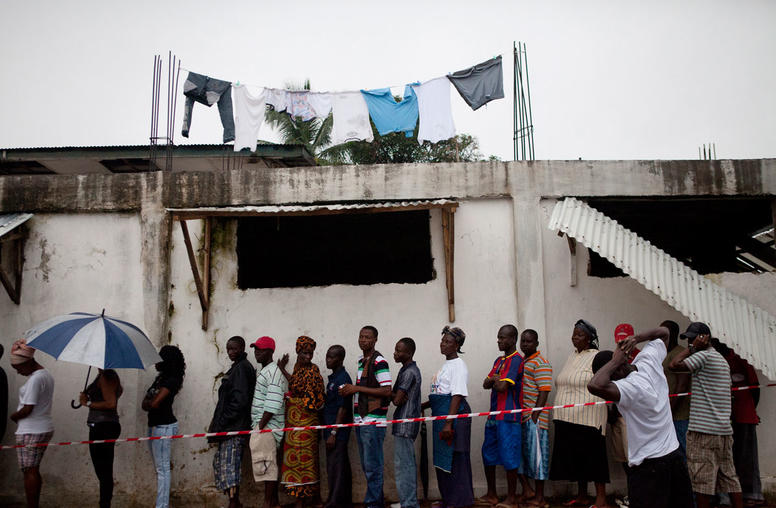
How the United Nations Can Harness 'People Power'
The United Nations has declared a priority this year to unify and strengthen its work in building peace—and U.N. bodies will meet in the next two months to advance that change. U.N. leaders have acknowledged that a vital element in peacebuilding is nonviolent, grassroots movements. But as the United Nations aims to more efficiently promote peace, how prepared is it to actually work with them?
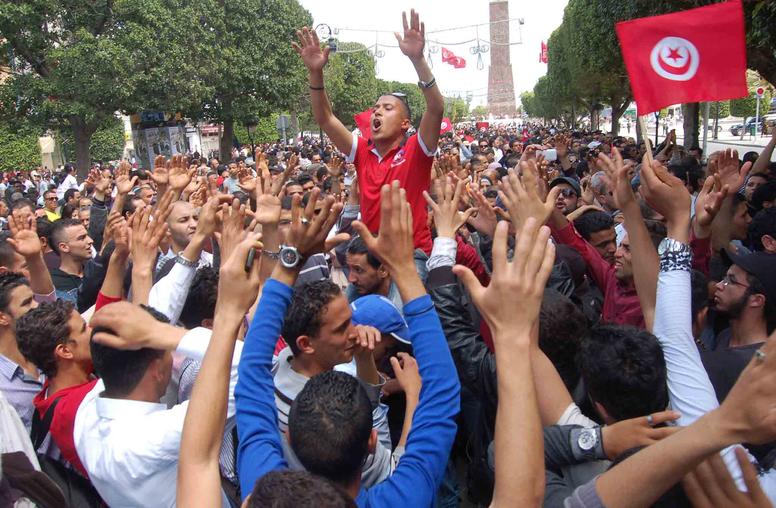
To Defeat Terrorism, Use 'People Power'
As governments and communities seek the right combination of methods to halt terrorism, one that we too often miss is nonviolent resistance. It’s not that we haven’t seen the power of protest movements that use mass marches, sit-ins, boycotts and other forceful but nonviolent tactics. To the contrary, people worldwide have been moved by watching such movements sweep aside the walls of apartheid, the tanks of dictators or the impunity of kleptocracies...
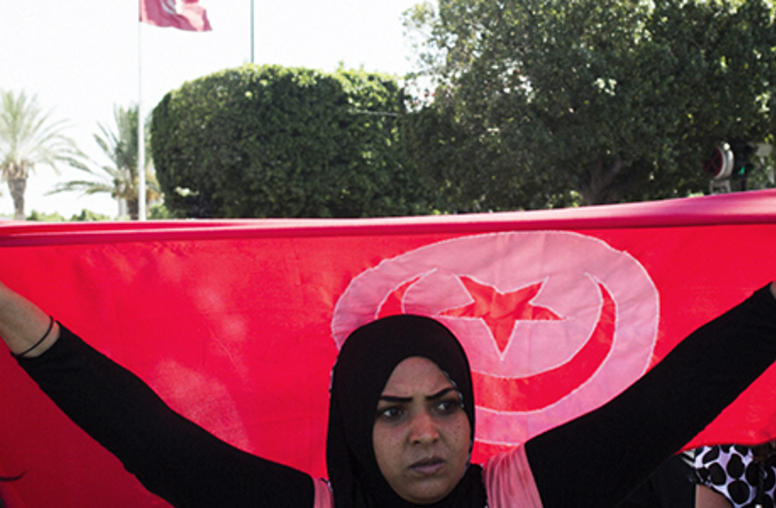
The Peacebuilder’s Field Guide to Protest Movements
Protest movements around the world scored major victories in 2015. But if we want to see real change, international donors need to stop fretting and lend a hand.
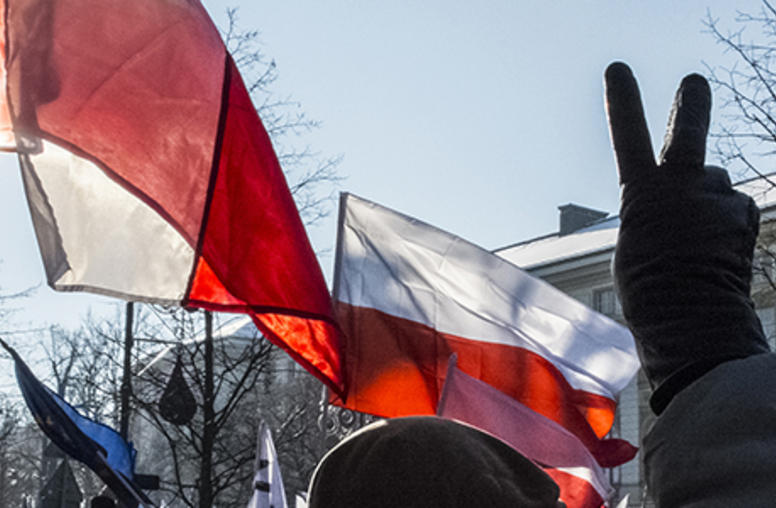
Poland’s Liberals Strike Back
Here's how Poles are fighting back against their authoritarian-leaning new government.